After a very pleasant night in the hut we start after breakfast and cleaning at 9 am. The weather is sunny and warm again and the autumn fjäll shines with us. A last look back at the huts in Pauro.
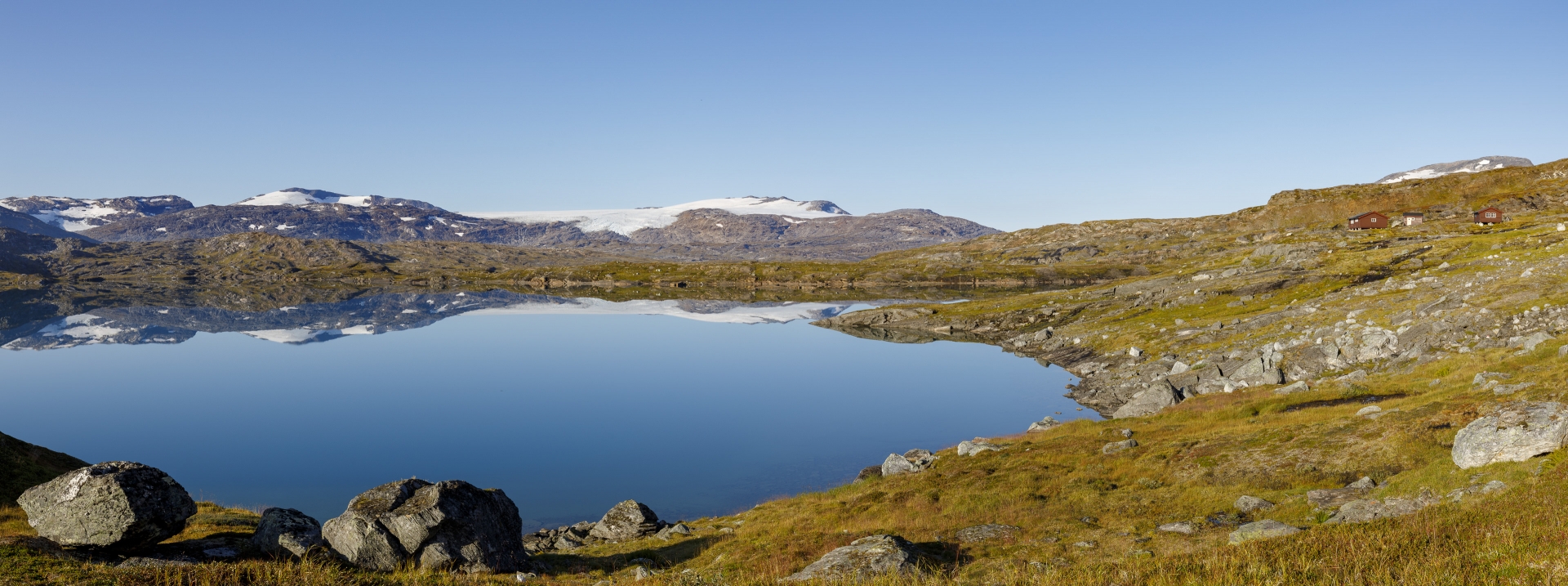 Bovrojávri mit dem Gihccejiekna im Hintergrund, rechts die Hütten von Pauro, © Markus Proske — Canon EOS 5D Mark IV, EF16-35mm f/4L IS USM, 35mm, 1/125s, Blende 11, ISO 100
Bovrojávri mit dem Gihccejiekna im Hintergrund, rechts die Hütten von Pauro, © Markus Proske — Canon EOS 5D Mark IV, EF16-35mm f/4L IS USM, 35mm, 1/125s, Blende 11, ISO 100On the way we also see some snow grouses that are not shy at all. They sit there very still and if you don’t spot them by accident, you don’t notice them at all.
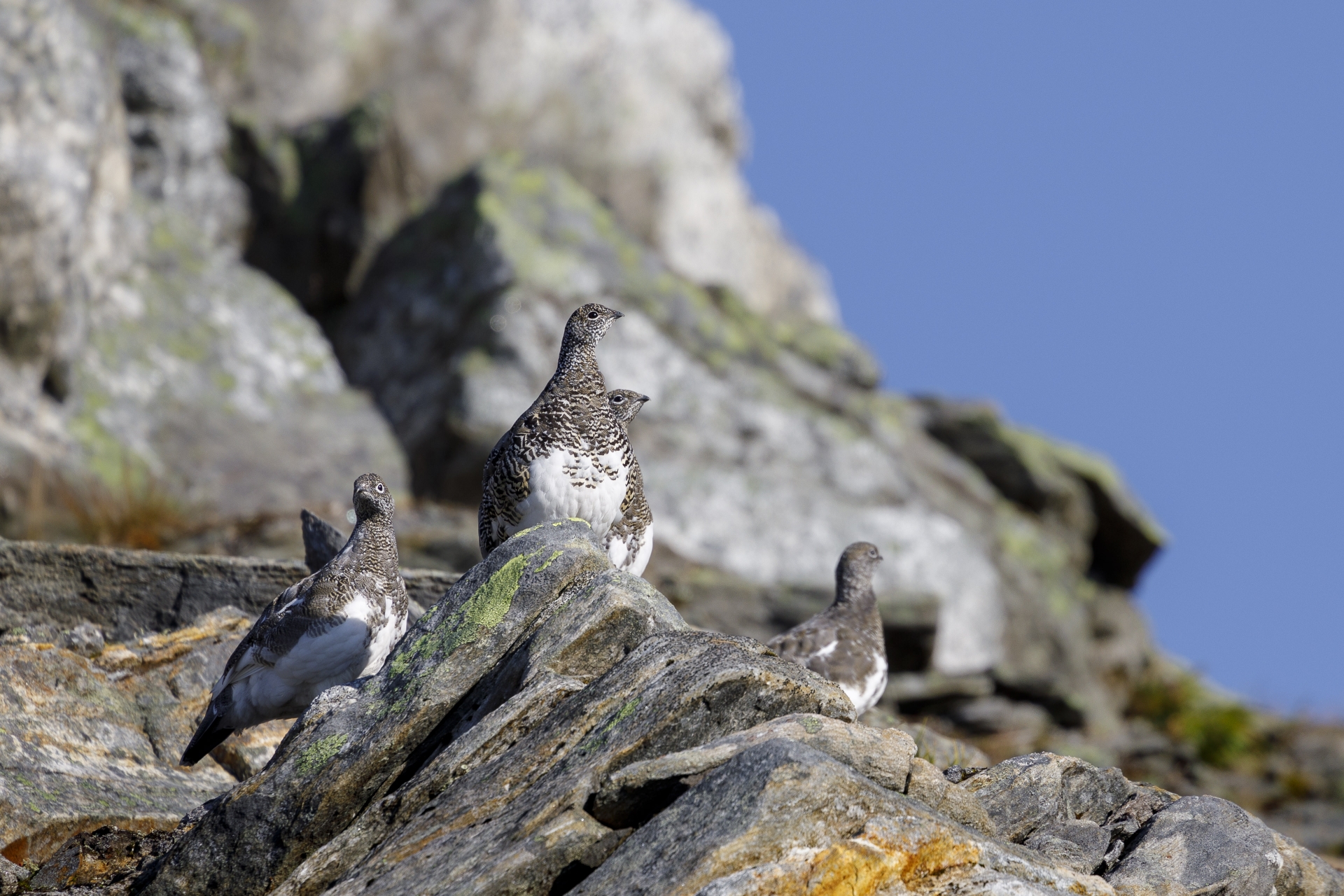 Alpenschneehühner (Lagopus muta), © Markus Proske — Canon EOS 5D Mark IV, EF70-300mm f/4-5.6L IS USM, 300mm, 1/640s, Blende 5.6, ISO 125
Alpenschneehühner (Lagopus muta), © Markus Proske — Canon EOS 5D Mark IV, EF70-300mm f/4-5.6L IS USM, 300mm, 1/640s, Blende 5.6, ISO 125In the first three hours we make good progress, the way is easy, it goes steadily uphill – sometimes stony and sometimes wet. From above we enjoy the magnificent view of the lakes and the mountain scenery.
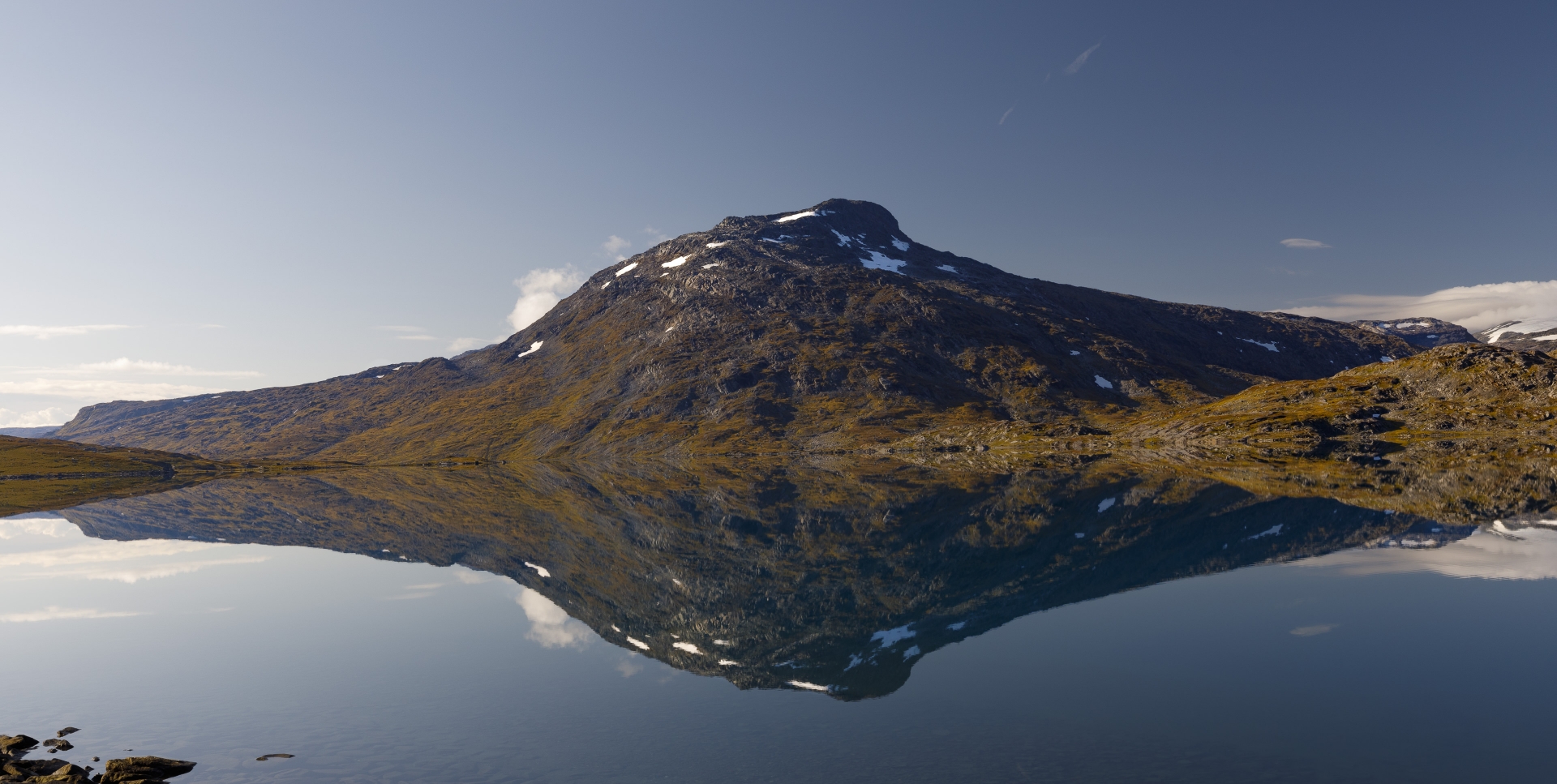 Noajdetjåhkkå, © Markus Proske — Canon EOS 5D Mark IV, EF16-35mm f/4L IS USM, 35mm, 1/60s, Blende 11, ISO 250
Noajdetjåhkkå, © Markus Proske — Canon EOS 5D Mark IV, EF16-35mm f/4L IS USM, 35mm, 1/60s, Blende 11, ISO 250 Wir zwei, © Markus Proske — Panasonic DMC-LX100, 24mm, 1/1600s, Blende 5.6, ISO 200
Wir zwei, © Markus Proske — Panasonic DMC-LX100, 24mm, 1/1600s, Blende 5.6, ISO 200Lustwandler Panorama: Ein Klick öffnet das Bild und man kann sich umsehen!

Bovrojávri umrahmt von Noajdetjåhkkå, Gihccejiekna und dem Paurofjellet (von links nach rechts), © Markus Proske — Canon EOS 5D Mark IV, EF16-35mm f/4L IS USM, 35mm, 1/60s, Blende 11, ISO 250
Lustwandler Panorama: Ein Klick öffnet das Bild und man kann sich umsehen!

Bovrojávri umrahmt von Noajdetjåhkkå, Gihccejiekna und dem Paurofjellet (von links nach rechts), © Markus Proske — Canon EOS 5D Mark IV, EF16-35mm f/4L IS USM, 35mm, 1/80s, Blende 11, ISO 320
Lustwandler Panorama: Ein Klick öffnet das Bild und man kann sich umsehen!

Bovrojávri umrahmt von Noajdetjåhkkå, Gihccejiekna und dem Paurofjellet (von links nach rechts), © Markus Proske — Canon EOS 5D Mark IV, EF16-35mm f/4L IS USM, 35mm, 1/80s, Blende 11, ISO 320
The descent is rocky and partly quite muddy but easy and good to walk.
Along the outflow of the Baugevatnet we continue to the next bridge, which is again from the model series “Just-for-Heroes”. First it doesn’t seem to be that wild, but: The bridge swings like hell and instead of a fixed, wide railing, which could still give a glimmer of safety, there are thin wires, which also swing along, as the only way to hold on.
So Markus goes back and forth three times, with his backpack, with me and finally with my backpack.
I don’t want to give the impression that the bridges are dangerous. They are walkable, but for people with fear of heights they are an absolute challenge.
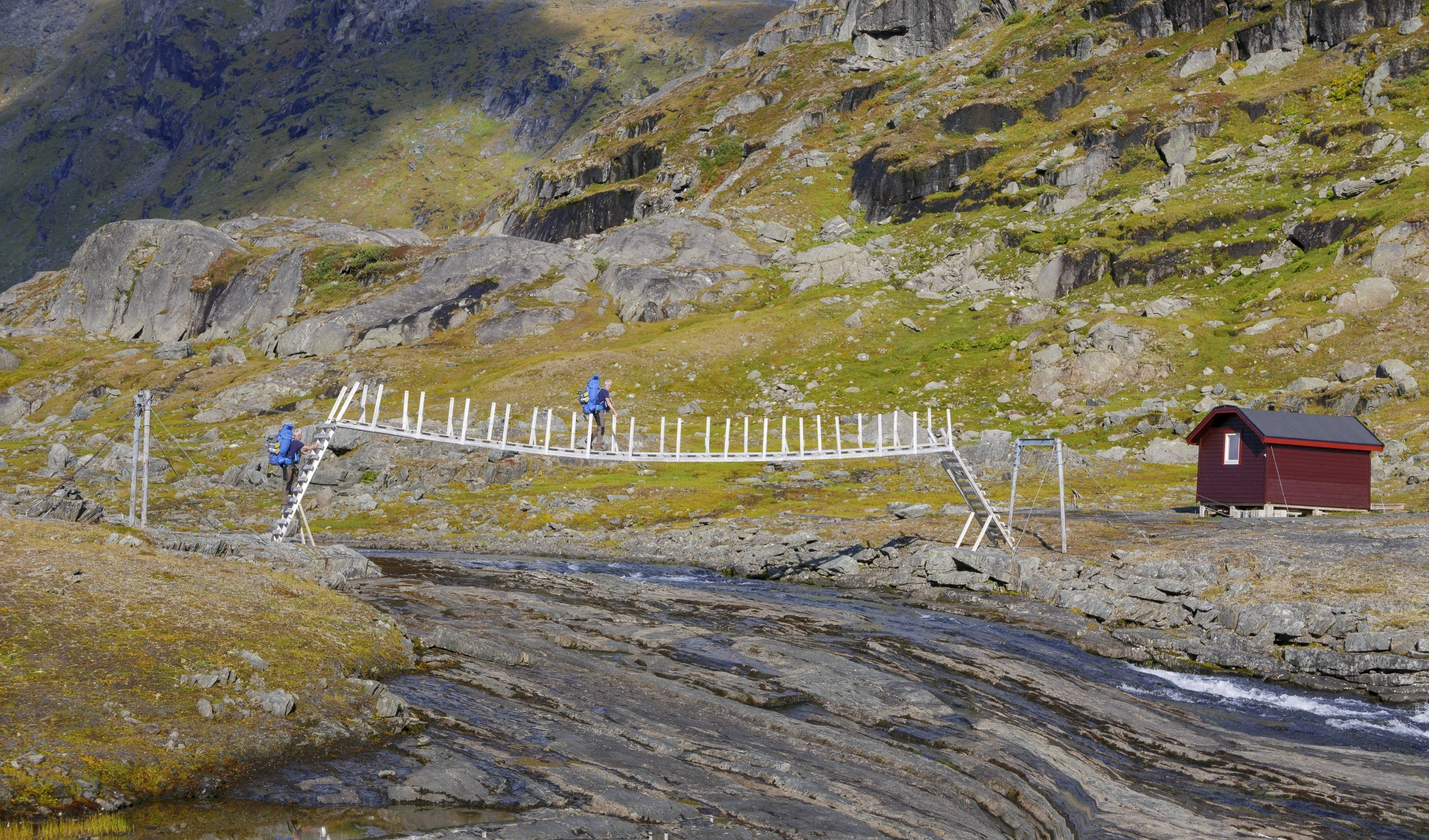 Hängebrücke über den Abfluss des Baugevatnet, © Markus Proske — Panasonic DMC-LX100, 75mm, 1/500s, Blende 8, ISO 200
Hängebrücke über den Abfluss des Baugevatnet, © Markus Proske — Panasonic DMC-LX100, 75mm, 1/500s, Blende 8, ISO 200 Hängebrücke über den Abfluss des Baugevatnet, © Markus Proske — Canon EOS 5D Mark IV, EF16-35mm f/4L IS USM, 35mm, 1/80s, Blende 11, ISO 400
Hängebrücke über den Abfluss des Baugevatnet, © Markus Proske — Canon EOS 5D Mark IV, EF16-35mm f/4L IS USM, 35mm, 1/80s, Blende 11, ISO 400On the other side of the bridge there is an emergency hut – locked, but our hut key fits. We sit down in front of the hut, eat a snack and think about staying right here and spending the night in the hut. We have 9 km behind us, 13 km to Sitas still before us. But the weather today is perfect and we don´t know the weather forecast for the next days. So we go a little further.
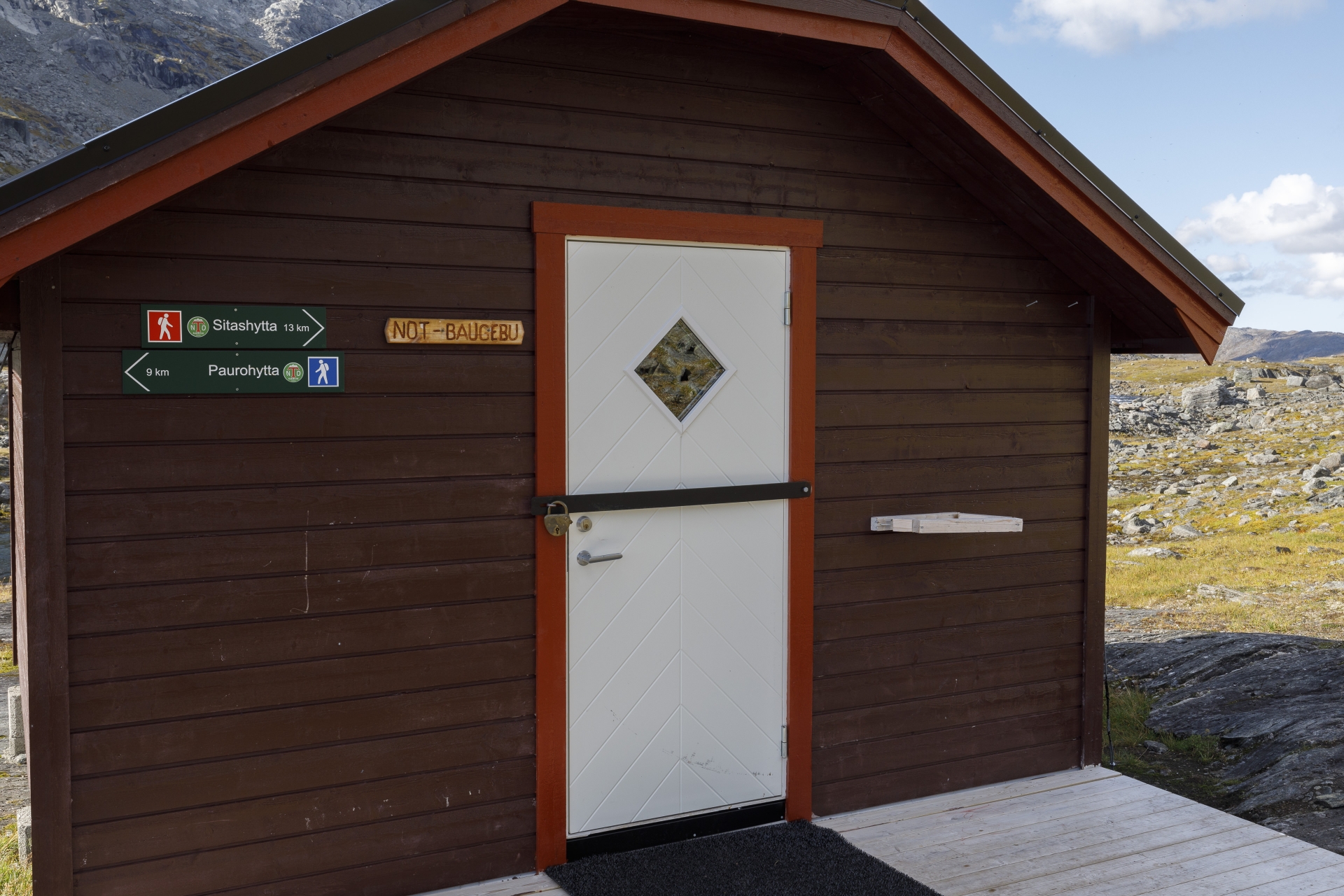 Baugebu (Nothütte für 2 Personen), © Markus Proske — Canon EOS 5D Mark IV, EF16-35mm f/4L IS USM, 35mm, 1/60s, Blende 11, ISO 400
Baugebu (Nothütte für 2 Personen), © Markus Proske — Canon EOS 5D Mark IV, EF16-35mm f/4L IS USM, 35mm, 1/60s, Blende 11, ISO 400Now it’s on a narrow path along the slope along the lake. The path is always a bit inclined due to the hillside location and has some nasty trip hazards called rocks.
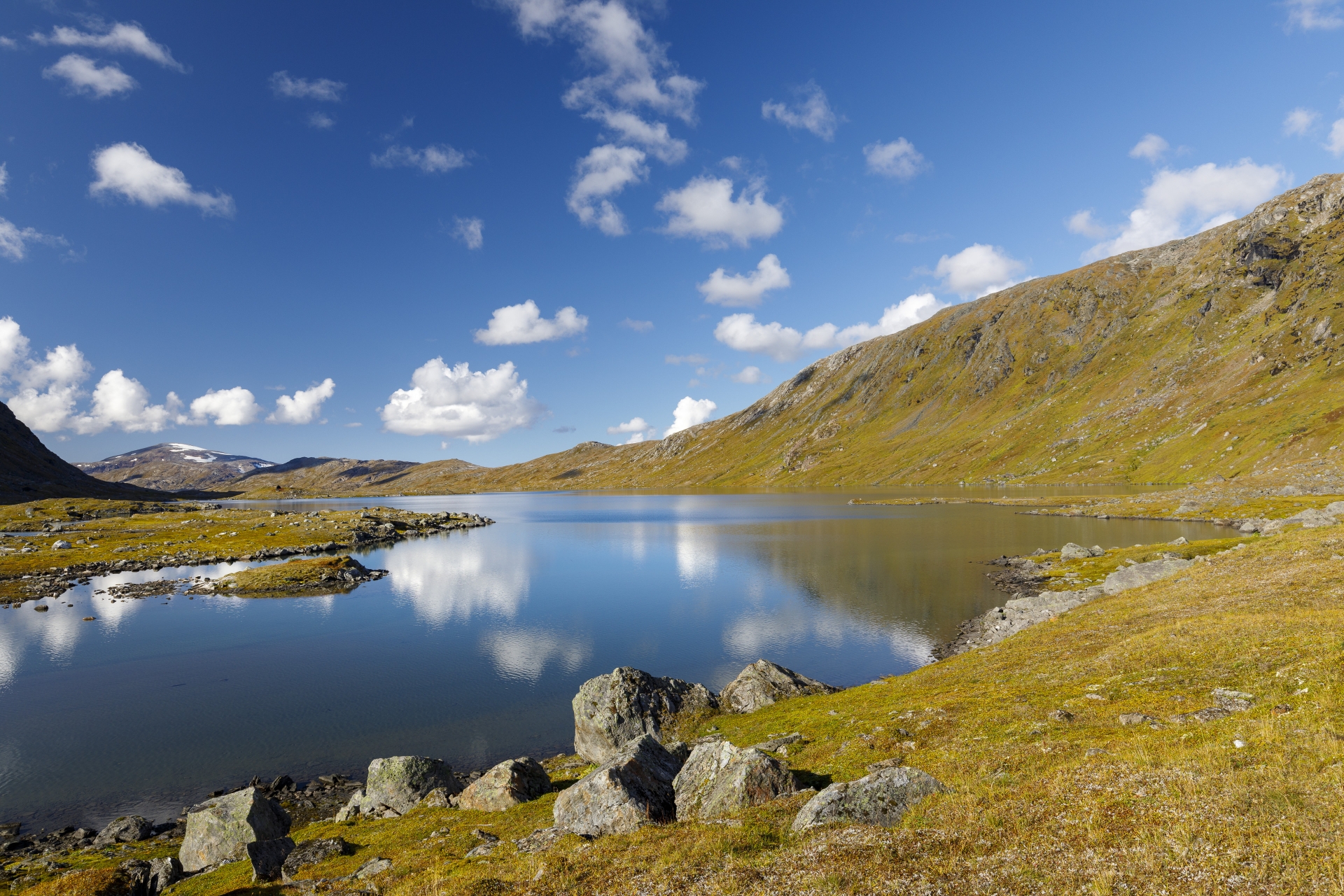 Baugevatnet, © Markus Proske — Canon EOS 5D Mark IV, EF16-35mm f/4L IS USM, 24mm, 1/60s, Blende 11, ISO 125
Baugevatnet, © Markus Proske — Canon EOS 5D Mark IV, EF16-35mm f/4L IS USM, 24mm, 1/60s, Blende 11, ISO 125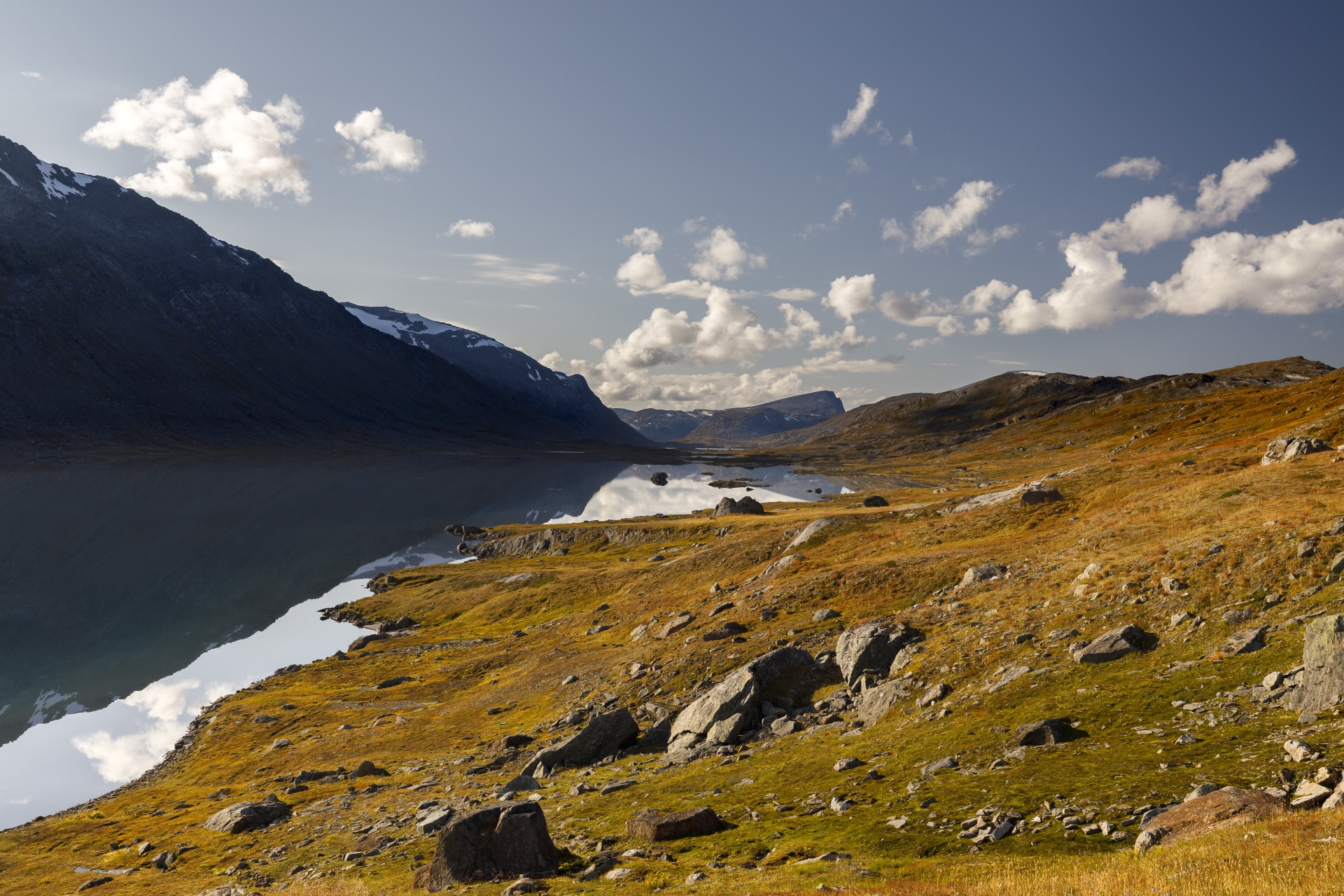 Baugevatnet, © Markus Proske — Canon EOS 5D Mark IV, EF16-35mm f/4L IS USM, 35mm, 1/60s, Blende 11, ISO 125
Baugevatnet, © Markus Proske — Canon EOS 5D Mark IV, EF16-35mm f/4L IS USM, 35mm, 1/60s, Blende 11, ISO 125Before our way goes up the slope, we decide to camp down here at the lake. Now we are only about 3 km away from the emergency hut, but here at the lake it is sooo beautiful! We get towels and soap and go down to the lake. Markus even goes into the lake and swims a few tempi, it’s enough for me to wash myself on the shore and cool my feet. Then we lie down in the sun and enjoy the warmth and life.
Later we set up our tent, sit outside. And again: as soon as the sun disappears behind the mountains, it gets cold. We eat outside, packed in our down jackets, do some Antara exercises to loosen our shoulder and back muscles and soon disappear into the tent.
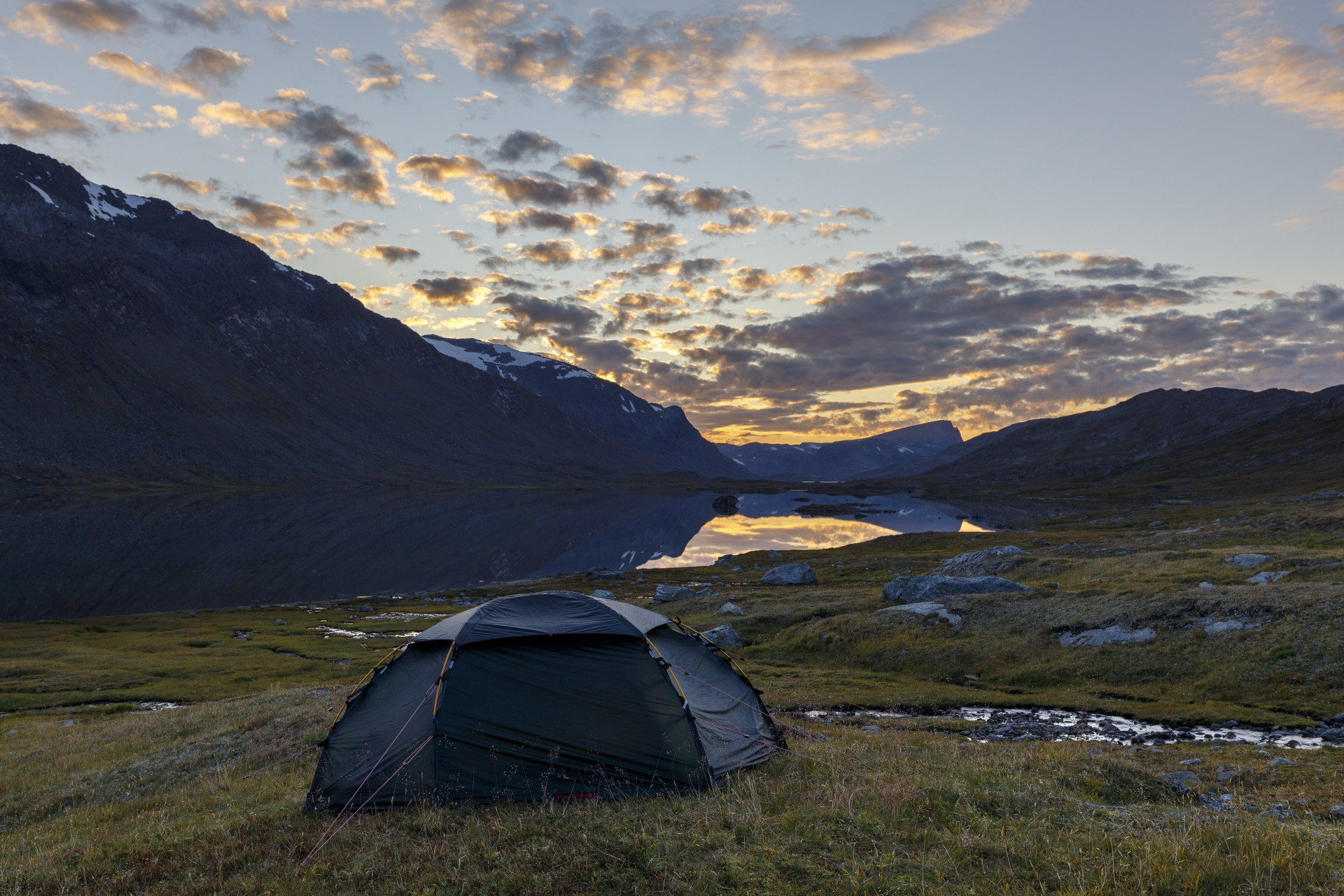 Abendstimmung im Baugevatnet, © Markus Proske — Canon EOS 5D Mark IV, EF16-35mm f/4L IS USM, 35mm, 1/60s, Blende 8, ISO 100
Abendstimmung im Baugevatnet, © Markus Proske — Canon EOS 5D Mark IV, EF16-35mm f/4L IS USM, 35mm, 1/60s, Blende 8, ISO 100We set the alarm to 1 o’clock – hoping to see northern lights again. And in fact we see light northern lights again. But what is even more impressive is the starry sky that night. Countless stars above us and so close that you think you just have to stretch out your hand to touch them.
We are awake until 2:30 am, take pictures and look into the sky. The following picture consists of several single shots, which a friend who is a hobby astronomer has stacked to a single picture.
Also with astronomical support there is a second image, where a constellation is drawn in, namely the swan, lat. Cygnus. Because of its two bright rows of stars it is also called the cross of the north. The constellation shows a flying swan with a long neck and two backward angled wings. In Greek mythology, the swan embodies the god Zeus, who – unrecognised – imitates women in this appearance. Also drawn is the lyre with its bright main star, the Vega, the brightest star in the northern hemisphere.
 Milky Way and Aurora Borealis on Baugevatnet, © Markus Proske (stacked by Daniel J.)
Milky Way and Aurora Borealis on Baugevatnet, © Markus Proske (stacked by Daniel J.)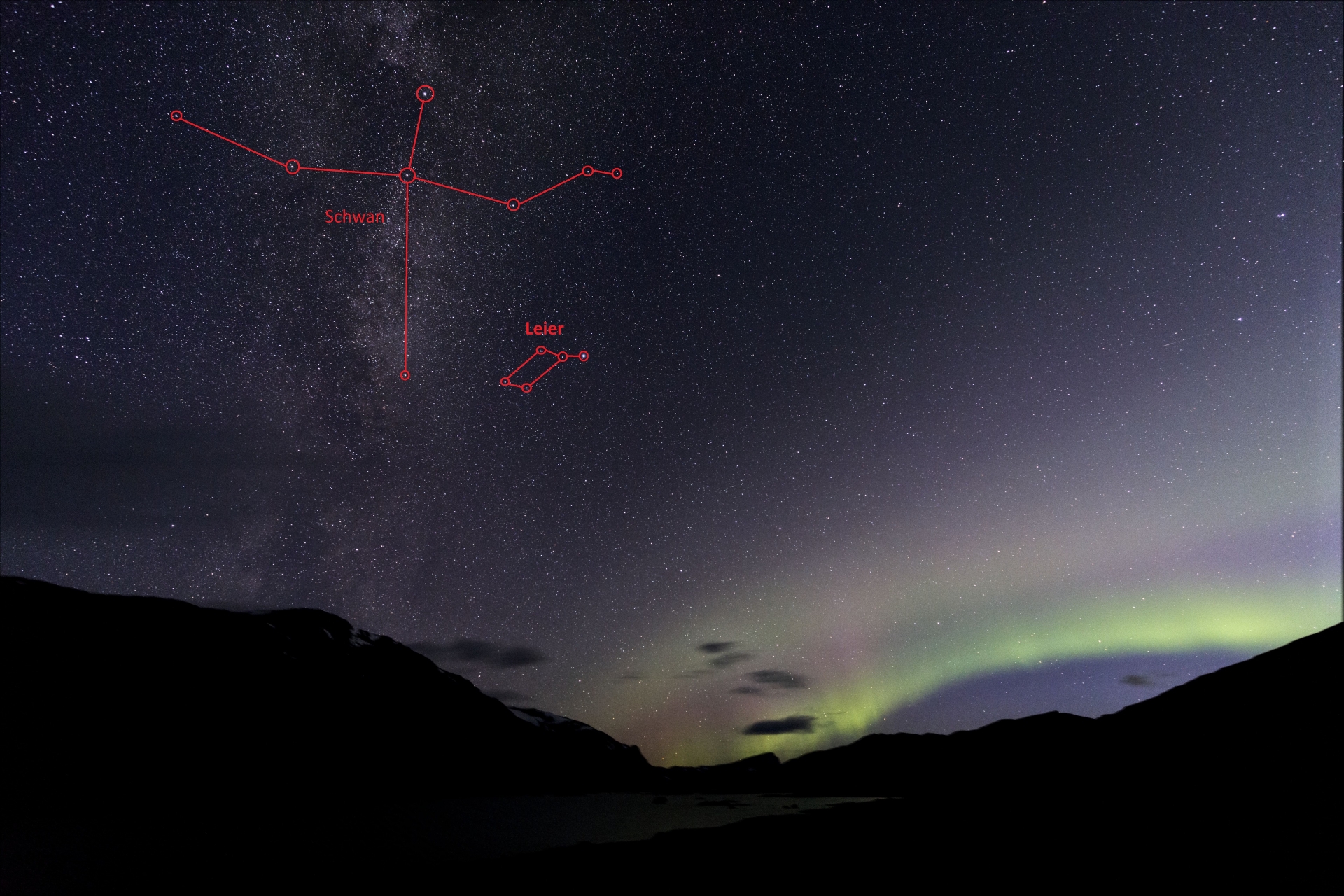 The Swan (other name: the Cross of the North)
The Swan (other name: the Cross of the North)There are two more single exposures. In comparison to the stacked exposure you can see the abundance of stars that become visible with this method!
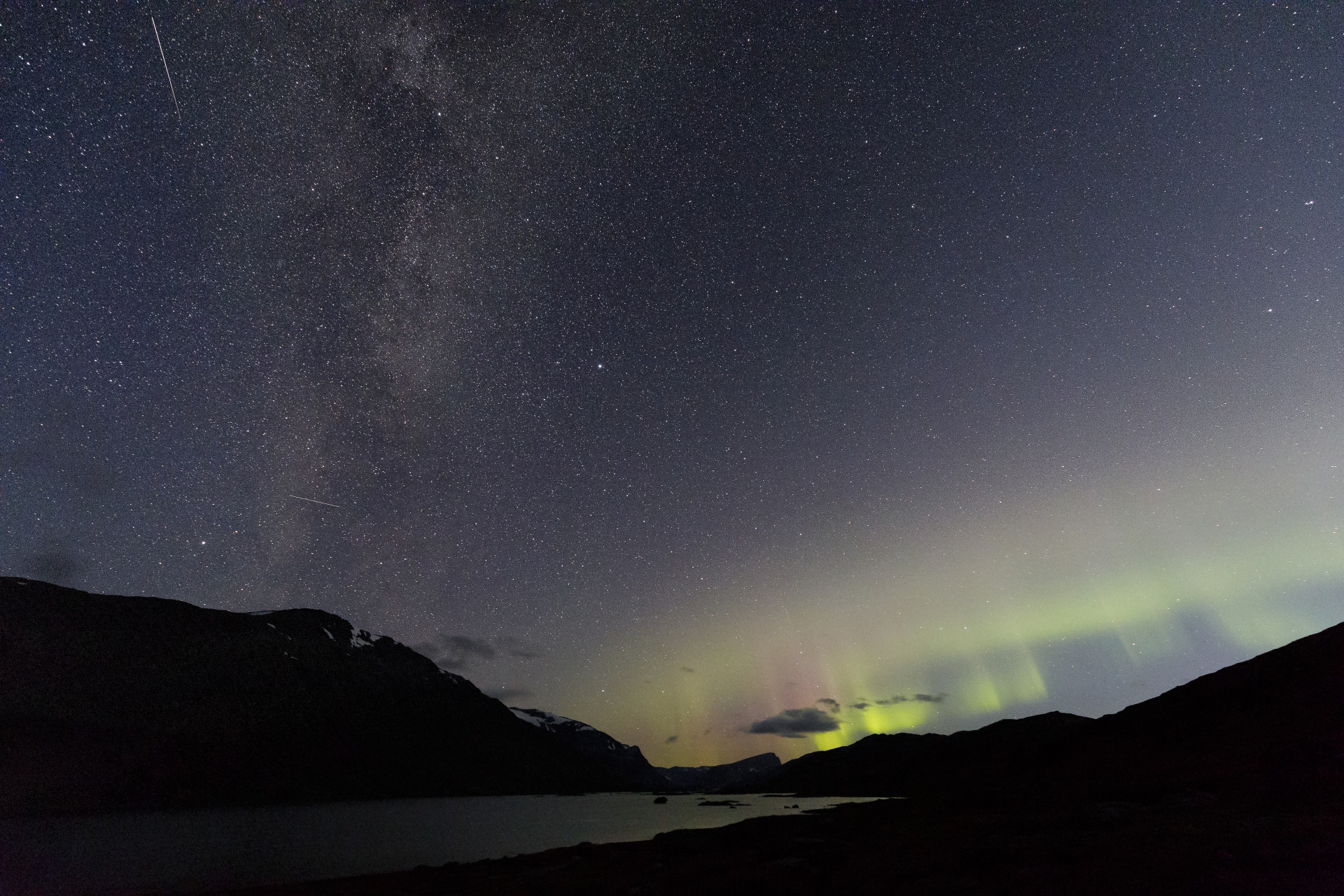 Milchstraße, Sternschnuppen und Aurora Borealis am Baugevatnet, © Markus Proske — Canon EOS 5D Mark IV, EF16-35mm f/4L IS USM, 16mm, 15/1s, Blende 4, ISO 12800
Milchstraße, Sternschnuppen und Aurora Borealis am Baugevatnet, © Markus Proske — Canon EOS 5D Mark IV, EF16-35mm f/4L IS USM, 16mm, 15/1s, Blende 4, ISO 12800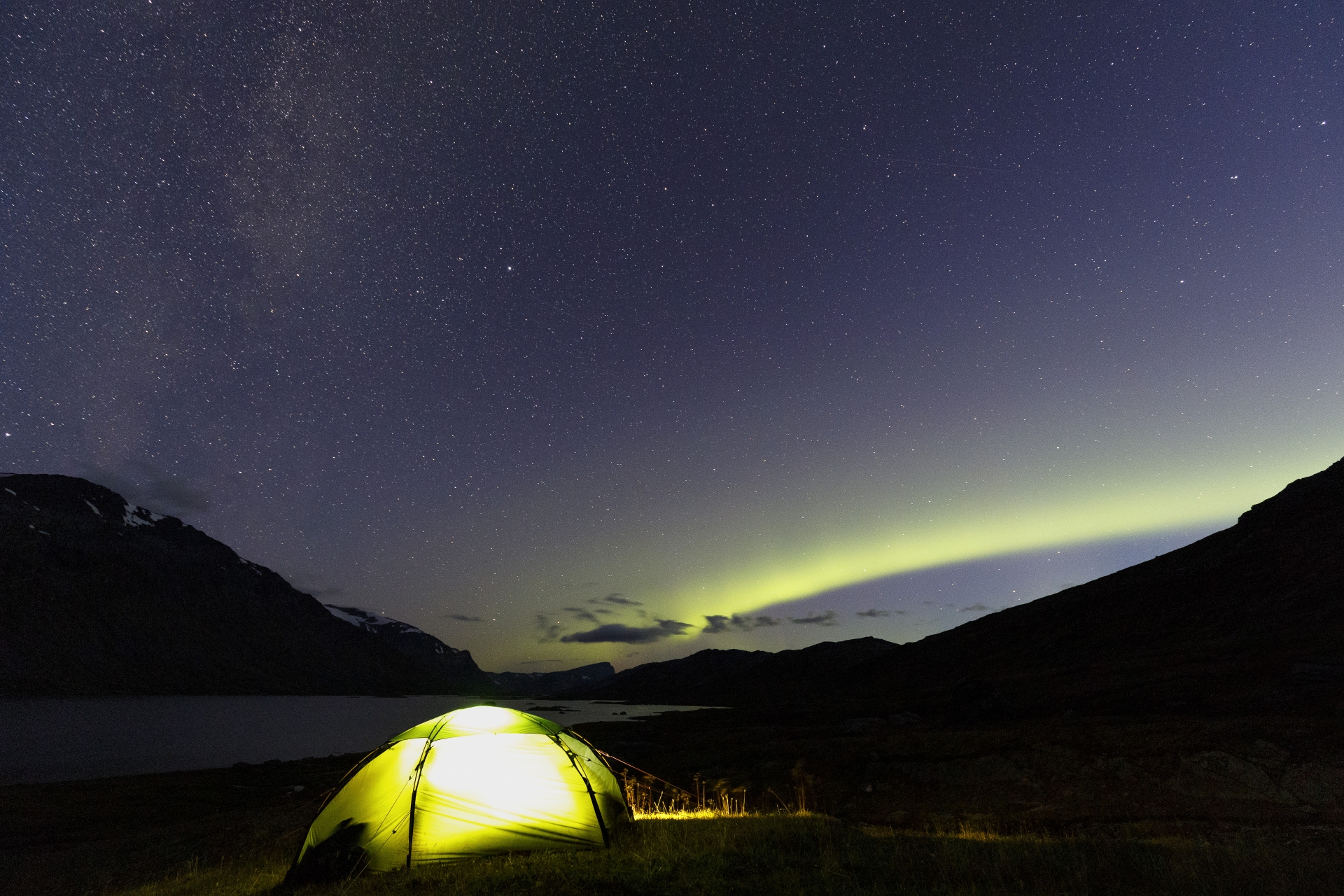 Zelten unterm Sternenhimmel (Baugevatnet), © Markus Proske — Canon EOS 5D Mark IV, EF16-35mm f/4L IS USM, 16mm, 20/1s, Blende 4, ISO 6400
Zelten unterm Sternenhimmel (Baugevatnet), © Markus Proske — Canon EOS 5D Mark IV, EF16-35mm f/4L IS USM, 16mm, 20/1s, Blende 4, ISO 6400
 Bovrojávri mit dem Gihccejiekna im Hintergrund, rechts die Hütten von Pauro, © Markus Proske — Canon EOS 5D Mark IV, EF16-35mm f/4L IS USM, 35mm, 1/125s, Blende 11, ISO 100
Bovrojávri mit dem Gihccejiekna im Hintergrund, rechts die Hütten von Pauro, © Markus Proske — Canon EOS 5D Mark IV, EF16-35mm f/4L IS USM, 35mm, 1/125s, Blende 11, ISO 100 Alpenschneehühner (Lagopus muta), © Markus Proske — Canon EOS 5D Mark IV, EF70-300mm f/4-5.6L IS USM, 300mm, 1/640s, Blende 5.6, ISO 125
Alpenschneehühner (Lagopus muta), © Markus Proske — Canon EOS 5D Mark IV, EF70-300mm f/4-5.6L IS USM, 300mm, 1/640s, Blende 5.6, ISO 125 Noajdetjåhkkå, © Markus Proske — Canon EOS 5D Mark IV, EF16-35mm f/4L IS USM, 35mm, 1/60s, Blende 11, ISO 250
Noajdetjåhkkå, © Markus Proske — Canon EOS 5D Mark IV, EF16-35mm f/4L IS USM, 35mm, 1/60s, Blende 11, ISO 250 Wir zwei, © Markus Proske — Panasonic DMC-LX100, 24mm, 1/1600s, Blende 5.6, ISO 200
Wir zwei, © Markus Proske — Panasonic DMC-LX100, 24mm, 1/1600s, Blende 5.6, ISO 200


 Hängebrücke über den Abfluss des Baugevatnet, © Markus Proske — Panasonic DMC-LX100, 75mm, 1/500s, Blende 8, ISO 200
Hängebrücke über den Abfluss des Baugevatnet, © Markus Proske — Panasonic DMC-LX100, 75mm, 1/500s, Blende 8, ISO 200 Hängebrücke über den Abfluss des Baugevatnet, © Markus Proske — Canon EOS 5D Mark IV, EF16-35mm f/4L IS USM, 35mm, 1/80s, Blende 11, ISO 400
Hängebrücke über den Abfluss des Baugevatnet, © Markus Proske — Canon EOS 5D Mark IV, EF16-35mm f/4L IS USM, 35mm, 1/80s, Blende 11, ISO 400 Baugebu (Nothütte für 2 Personen), © Markus Proske — Canon EOS 5D Mark IV, EF16-35mm f/4L IS USM, 35mm, 1/60s, Blende 11, ISO 400
Baugebu (Nothütte für 2 Personen), © Markus Proske — Canon EOS 5D Mark IV, EF16-35mm f/4L IS USM, 35mm, 1/60s, Blende 11, ISO 400 Baugevatnet, © Markus Proske — Canon EOS 5D Mark IV, EF16-35mm f/4L IS USM, 24mm, 1/60s, Blende 11, ISO 125
Baugevatnet, © Markus Proske — Canon EOS 5D Mark IV, EF16-35mm f/4L IS USM, 24mm, 1/60s, Blende 11, ISO 125 Baugevatnet, © Markus Proske — Canon EOS 5D Mark IV, EF16-35mm f/4L IS USM, 35mm, 1/60s, Blende 11, ISO 125
Baugevatnet, © Markus Proske — Canon EOS 5D Mark IV, EF16-35mm f/4L IS USM, 35mm, 1/60s, Blende 11, ISO 125 Abendstimmung im Baugevatnet, © Markus Proske — Canon EOS 5D Mark IV, EF16-35mm f/4L IS USM, 35mm, 1/60s, Blende 8, ISO 100
Abendstimmung im Baugevatnet, © Markus Proske — Canon EOS 5D Mark IV, EF16-35mm f/4L IS USM, 35mm, 1/60s, Blende 8, ISO 100 Milky Way and Aurora Borealis on Baugevatnet, © Markus Proske (stacked by Daniel J.)
Milky Way and Aurora Borealis on Baugevatnet, © Markus Proske (stacked by Daniel J.) The Swan (other name: the Cross of the North)
The Swan (other name: the Cross of the North) Milchstraße, Sternschnuppen und Aurora Borealis am Baugevatnet, © Markus Proske — Canon EOS 5D Mark IV, EF16-35mm f/4L IS USM, 16mm, 15/1s, Blende 4, ISO 12800
Milchstraße, Sternschnuppen und Aurora Borealis am Baugevatnet, © Markus Proske — Canon EOS 5D Mark IV, EF16-35mm f/4L IS USM, 16mm, 15/1s, Blende 4, ISO 12800 Zelten unterm Sternenhimmel (Baugevatnet), © Markus Proske — Canon EOS 5D Mark IV, EF16-35mm f/4L IS USM, 16mm, 20/1s, Blende 4, ISO 6400
Zelten unterm Sternenhimmel (Baugevatnet), © Markus Proske — Canon EOS 5D Mark IV, EF16-35mm f/4L IS USM, 16mm, 20/1s, Blende 4, ISO 6400
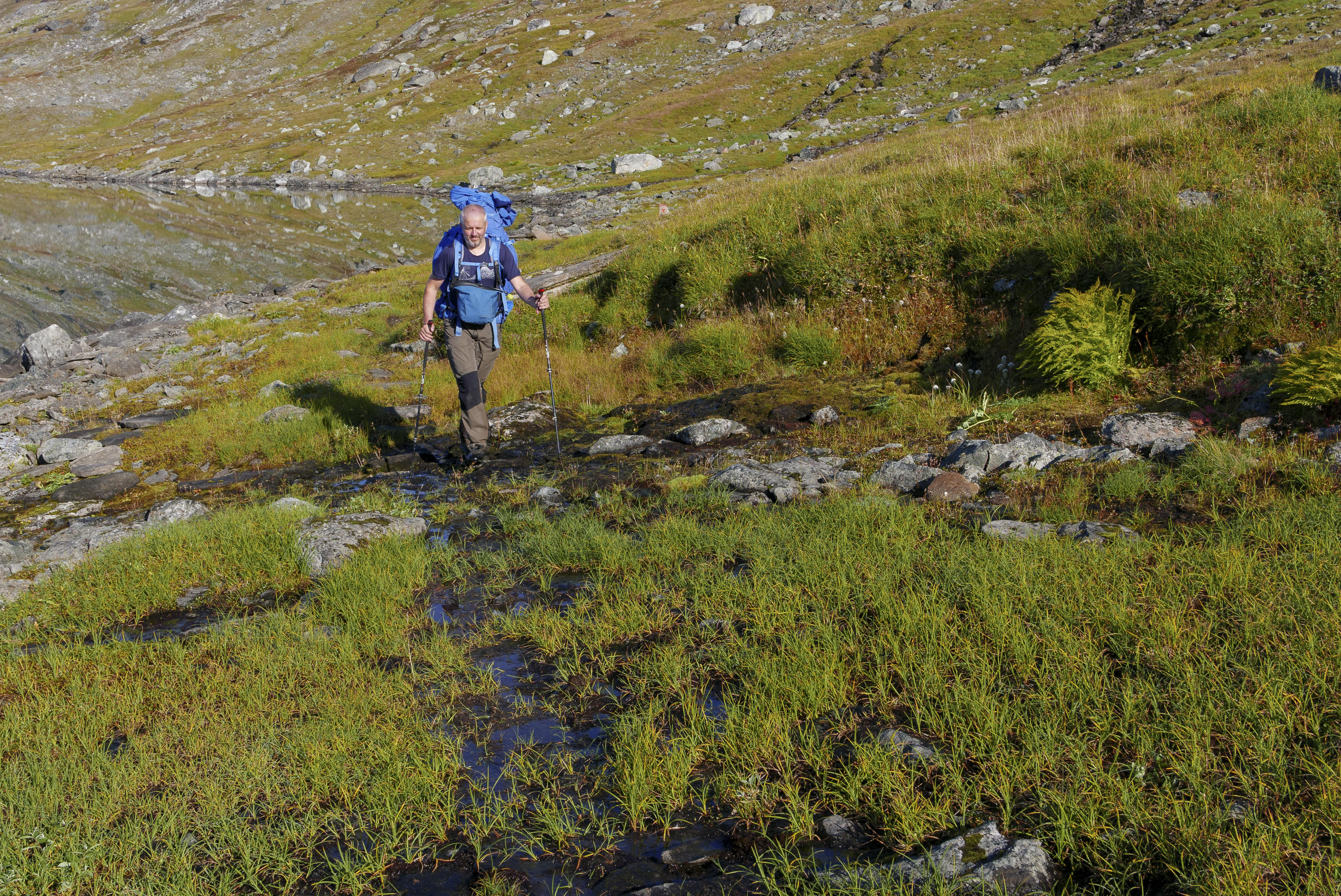
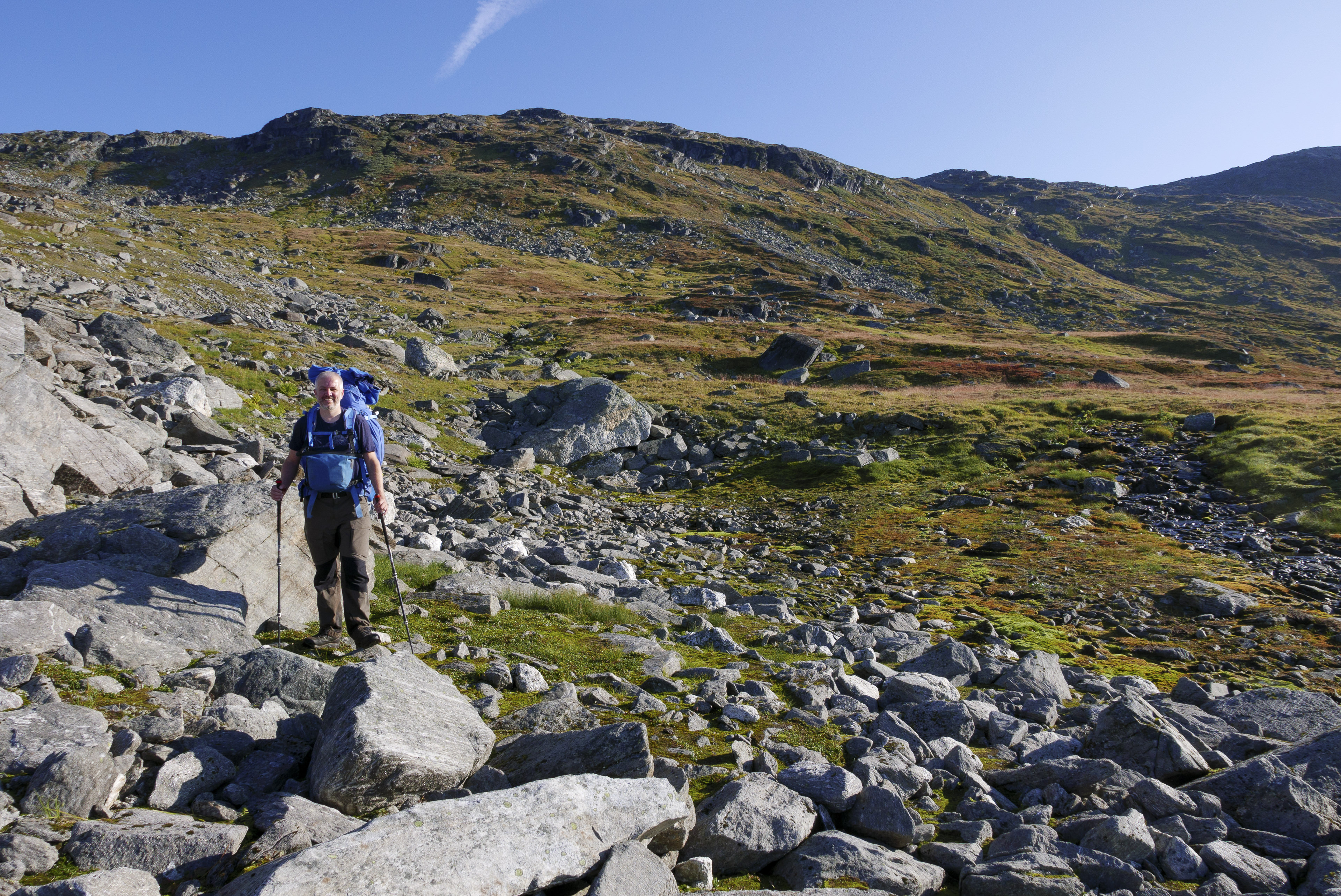
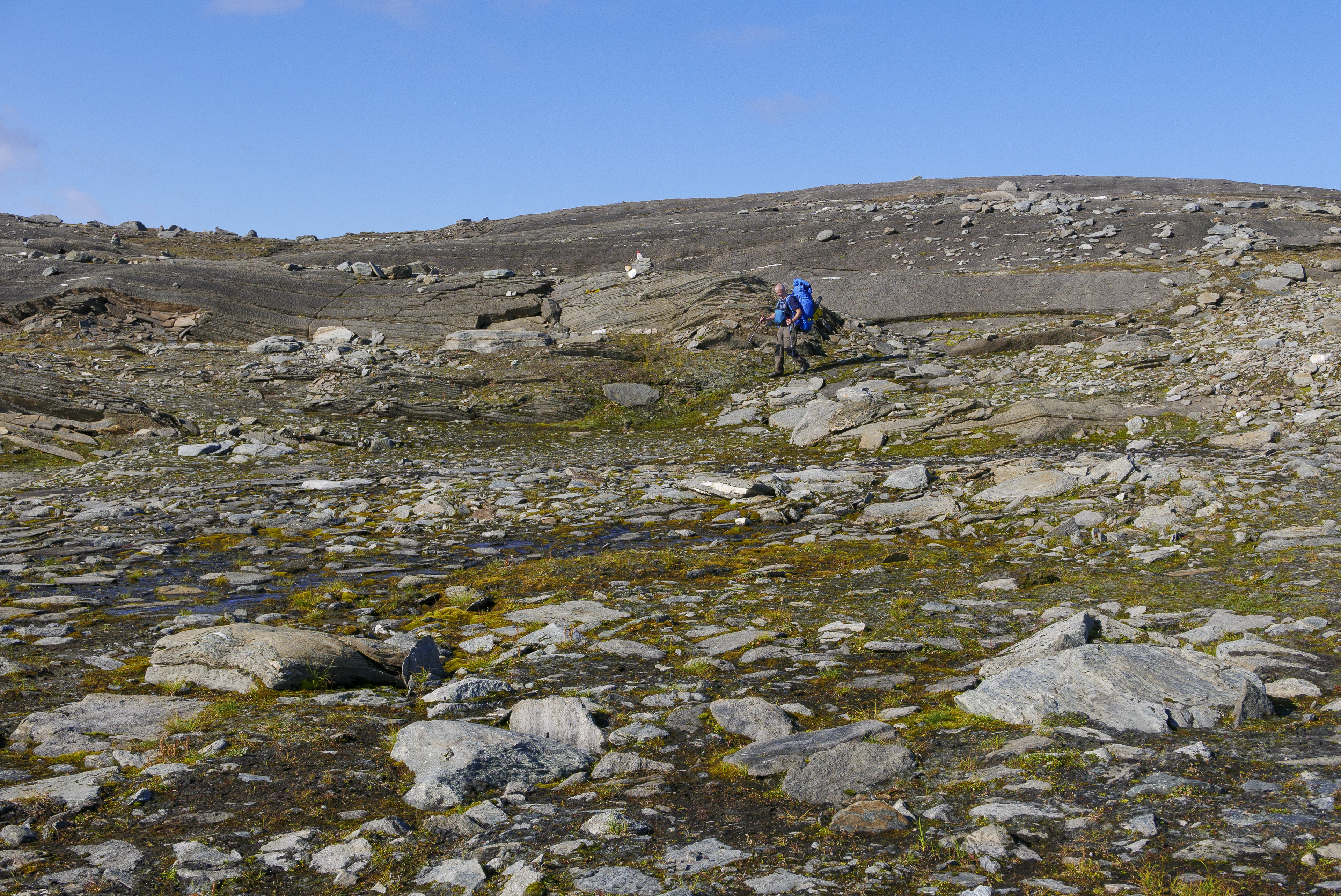
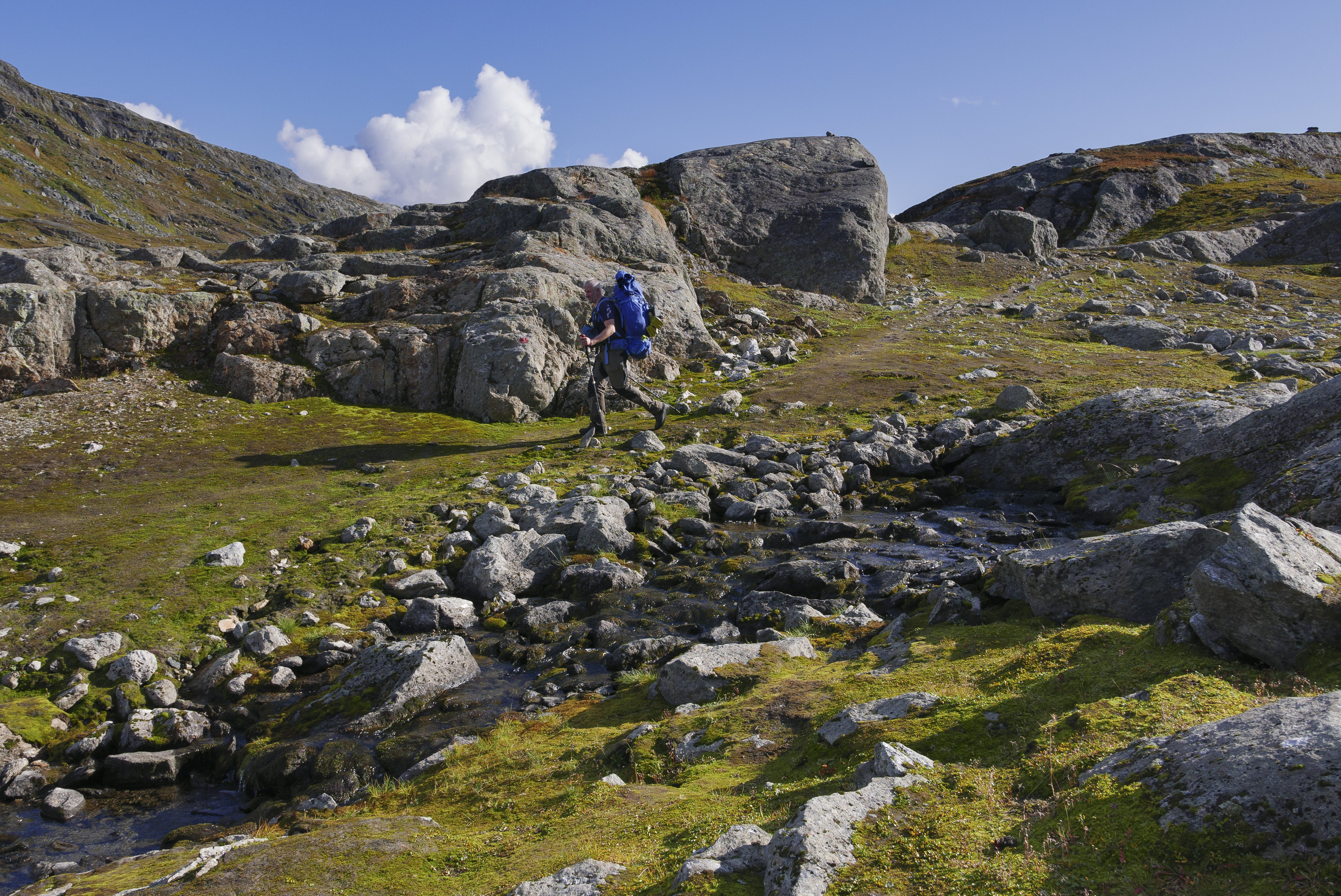
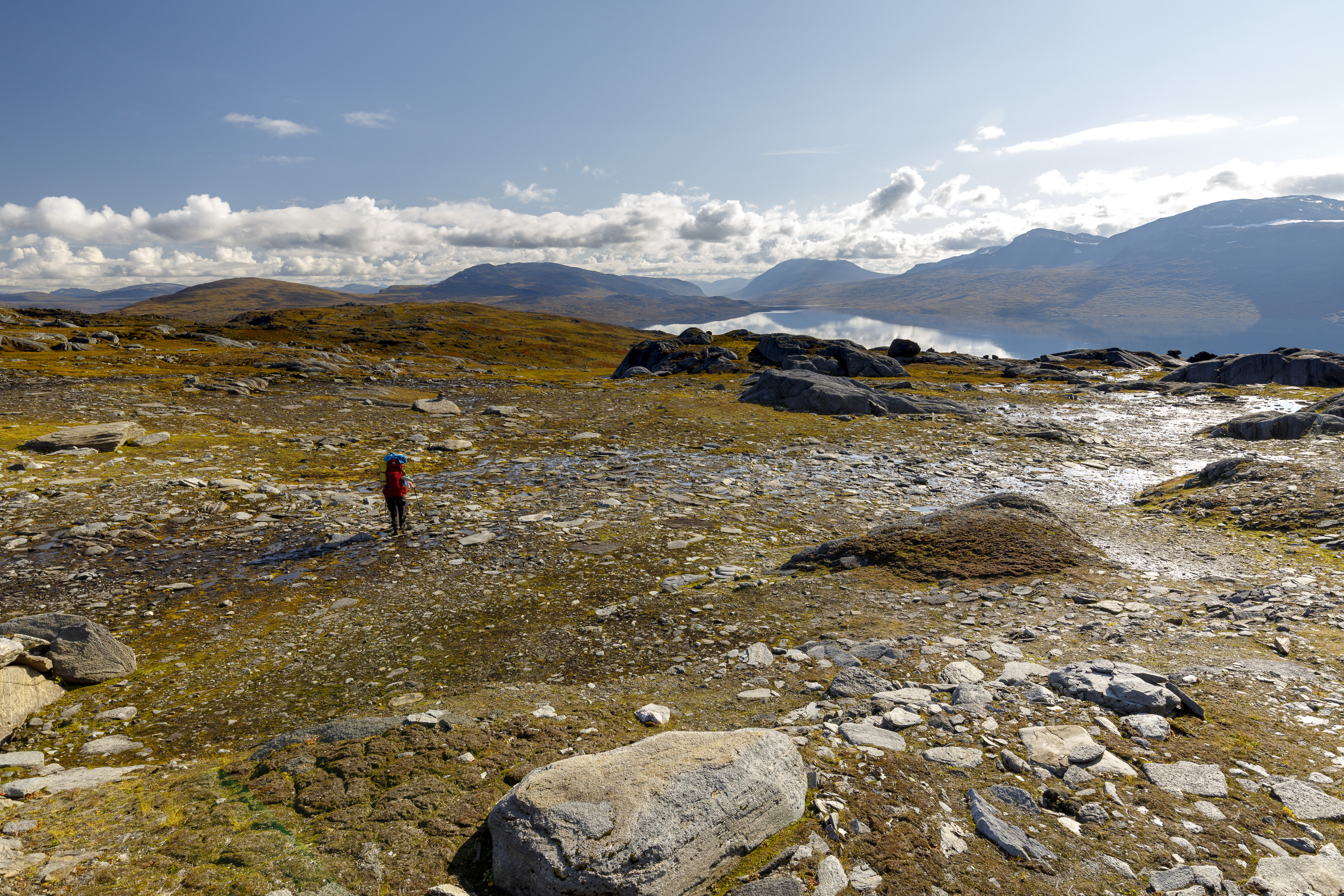
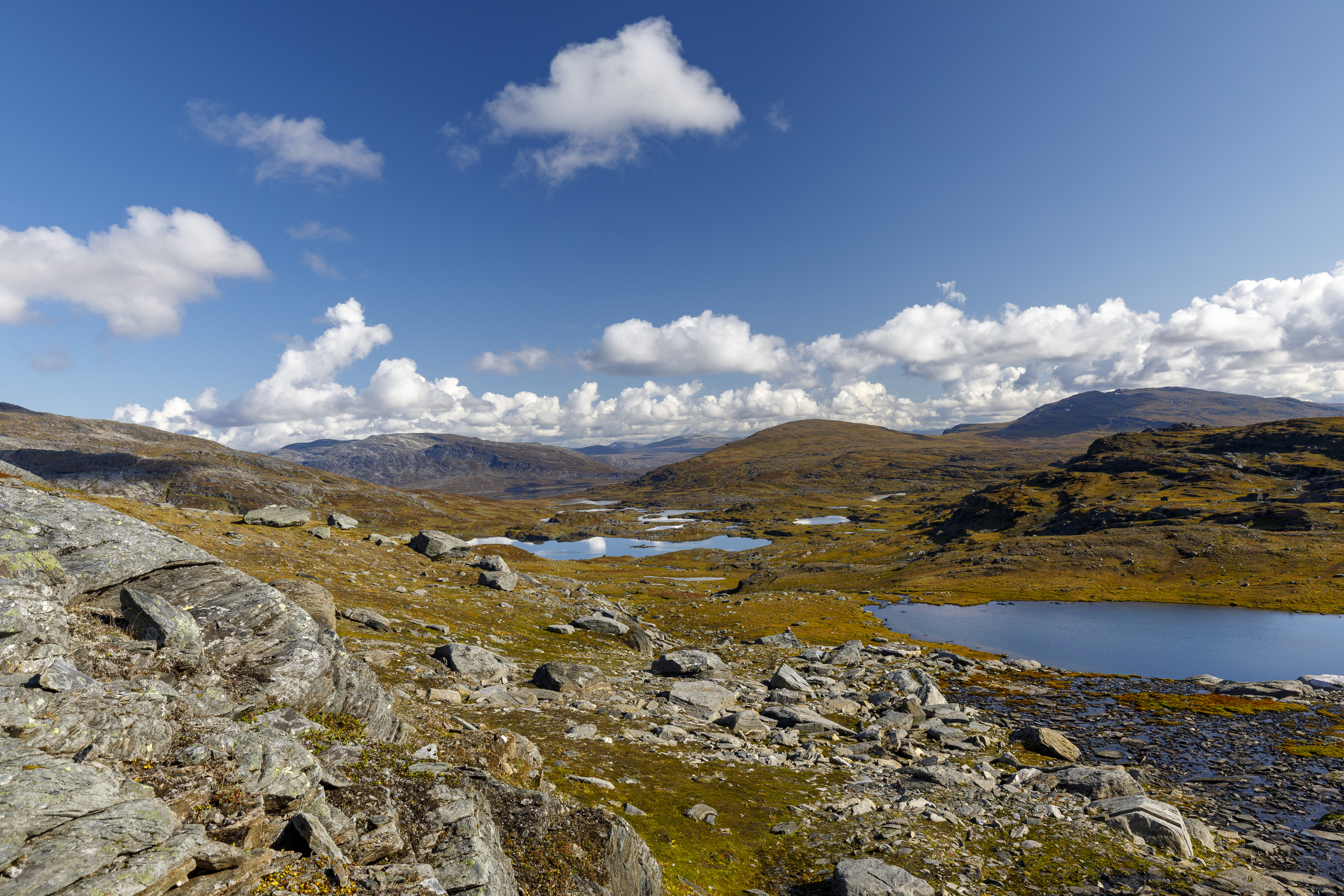
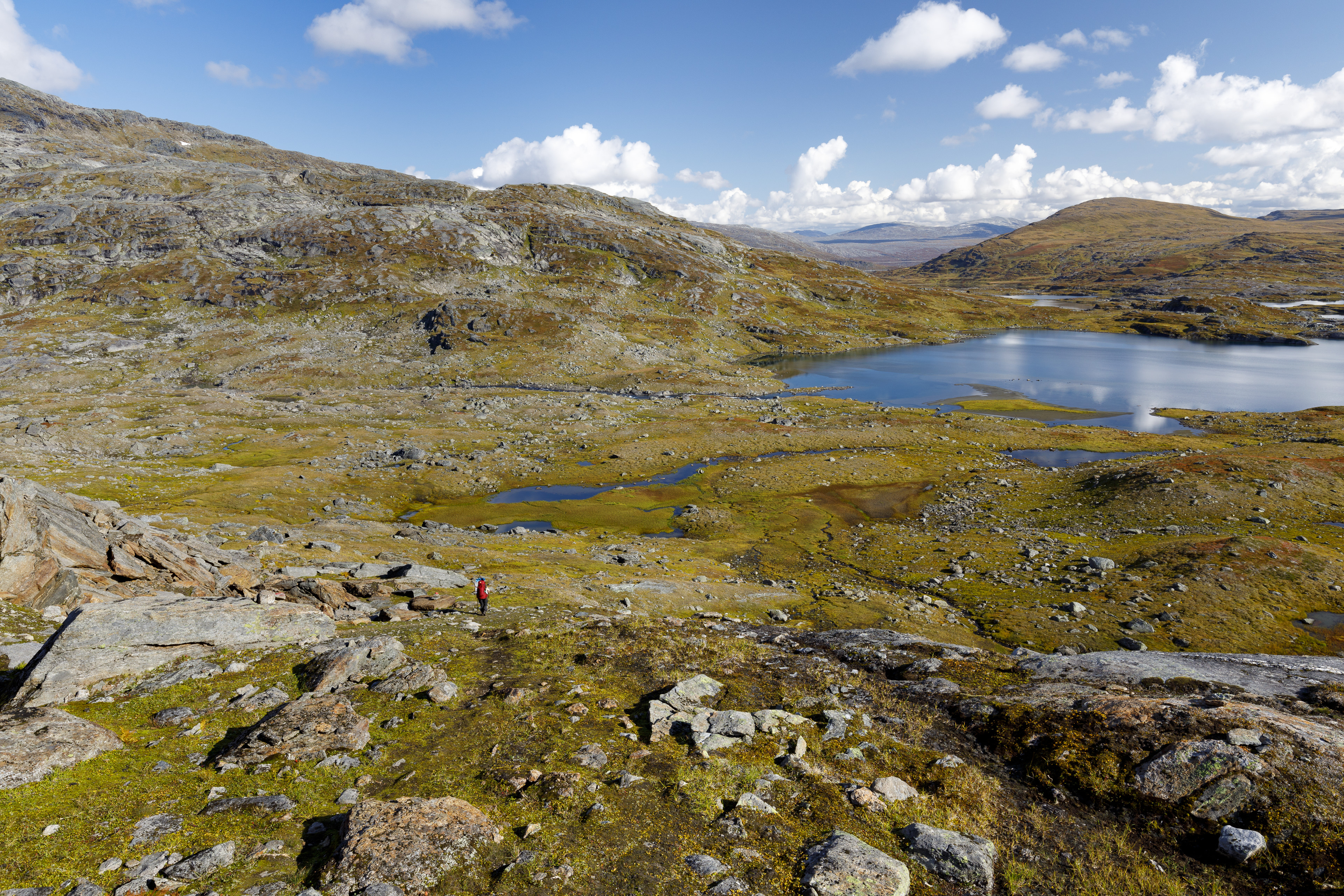
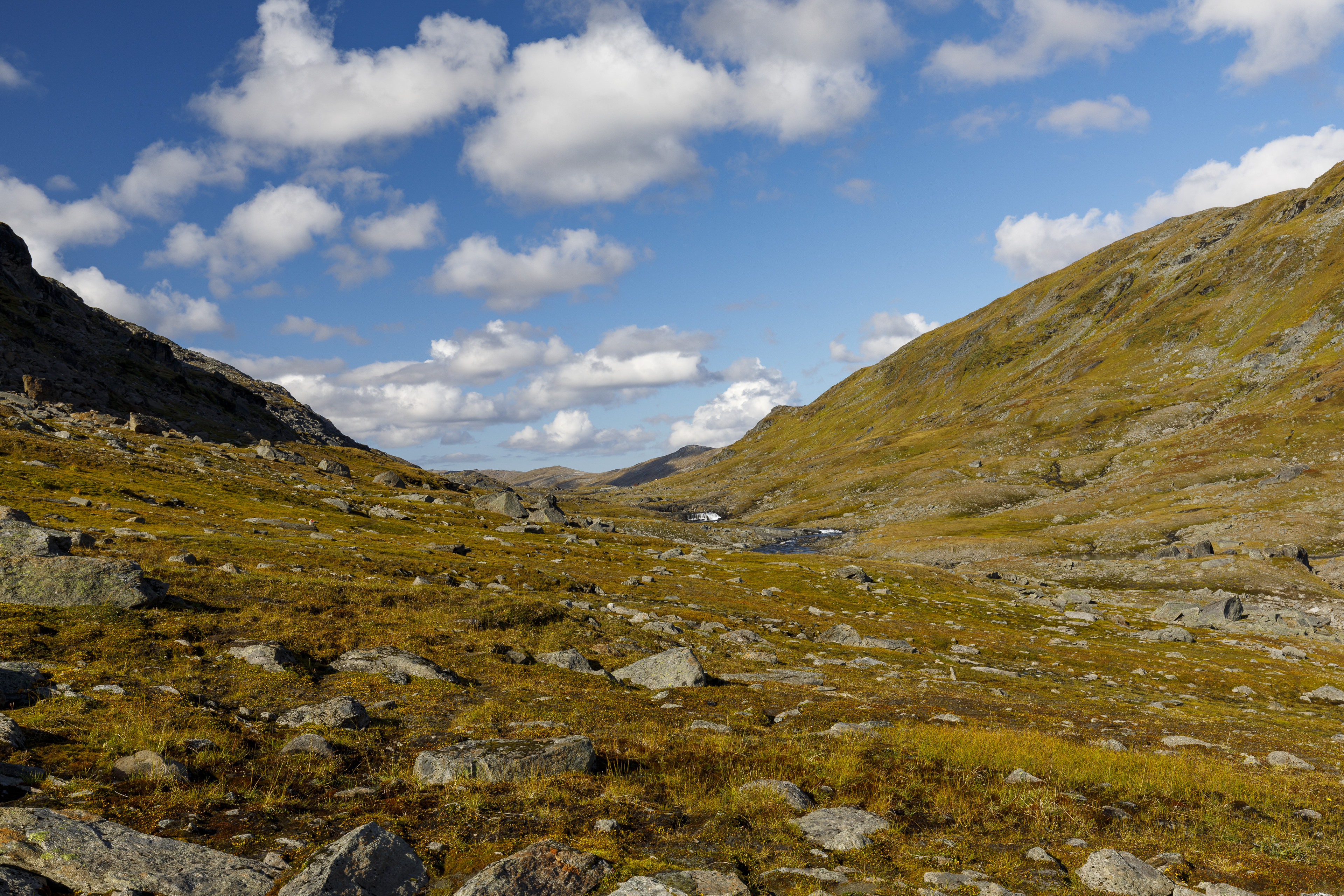
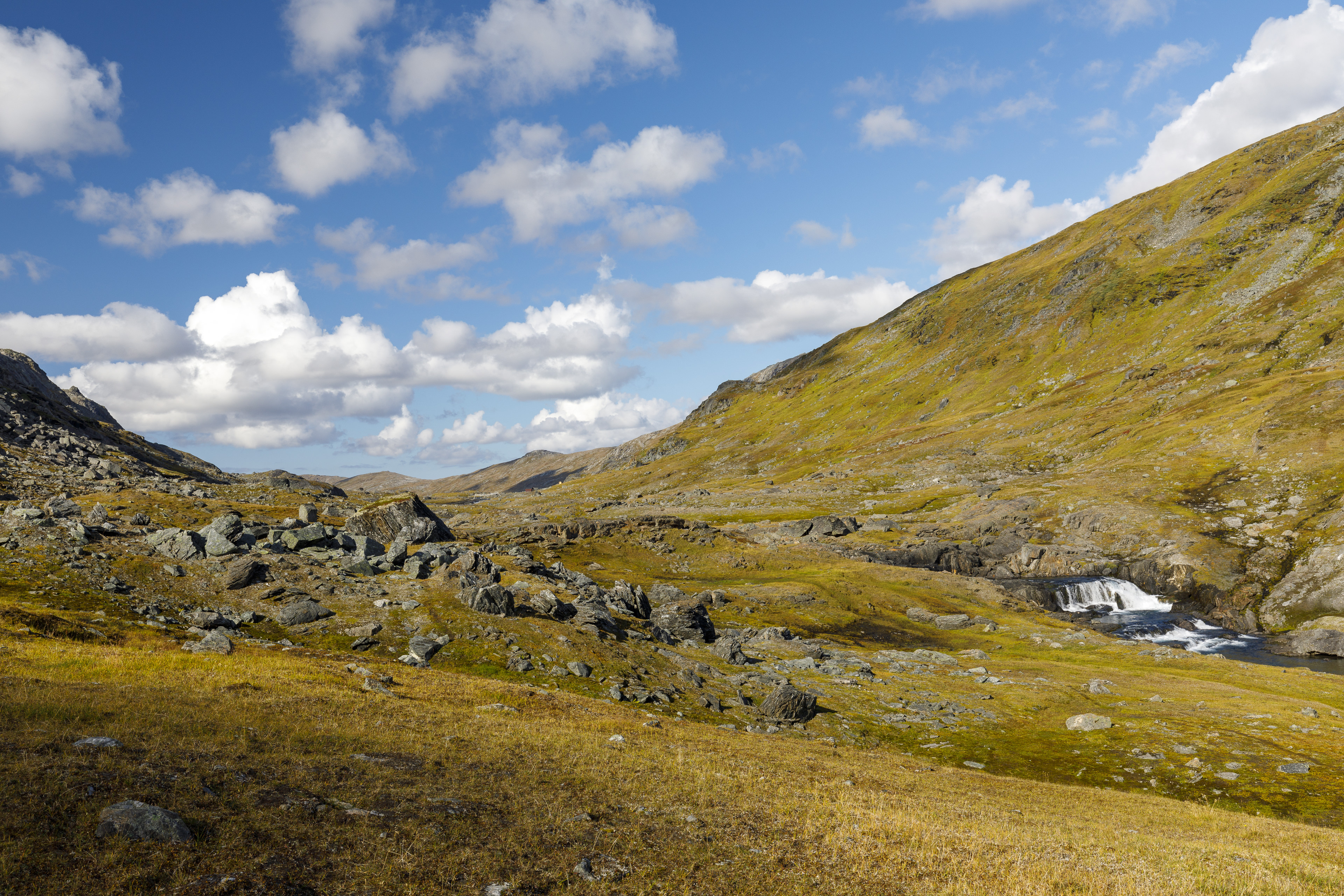
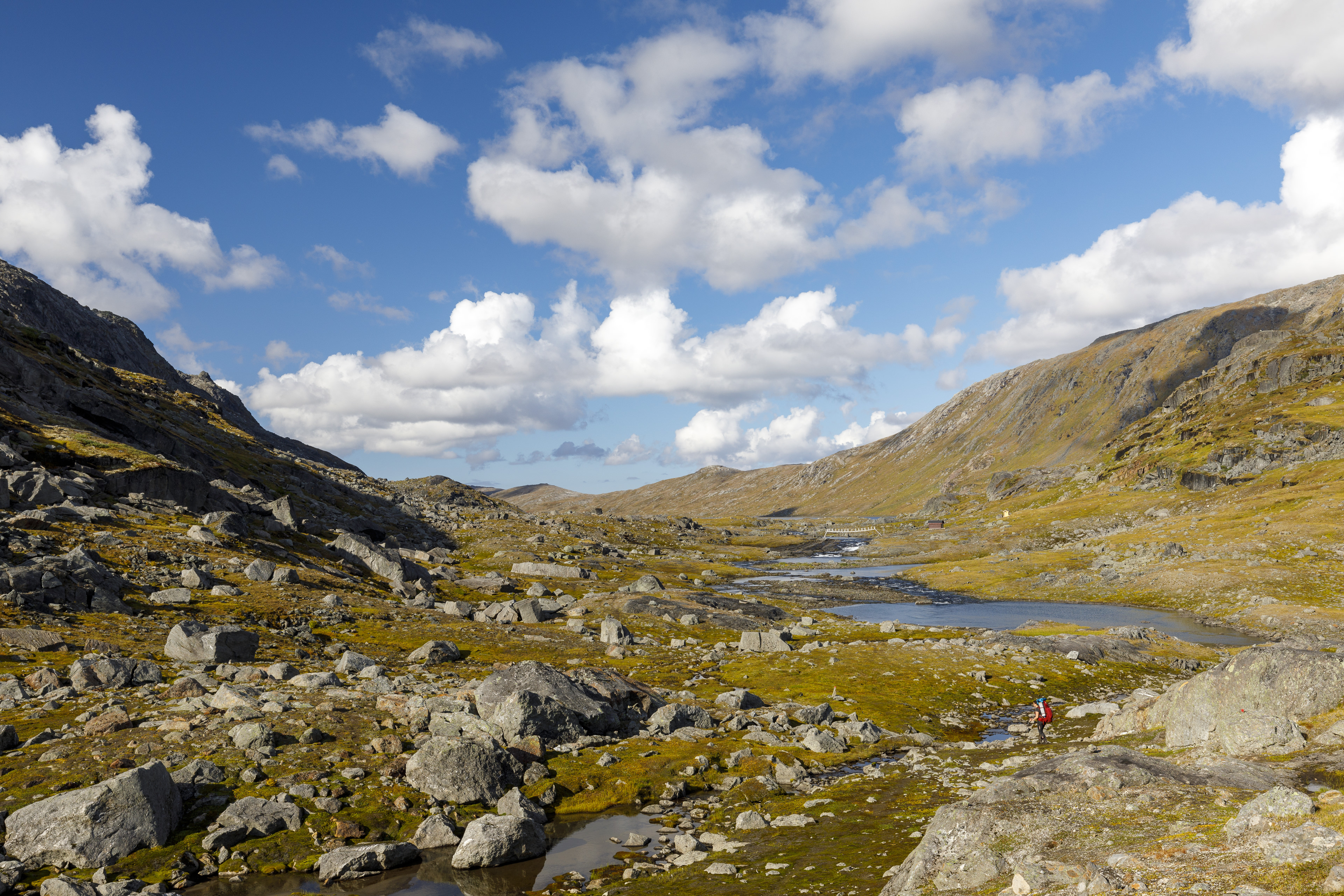
Leave a Reply
Want to join the discussion?Feel free to contribute!